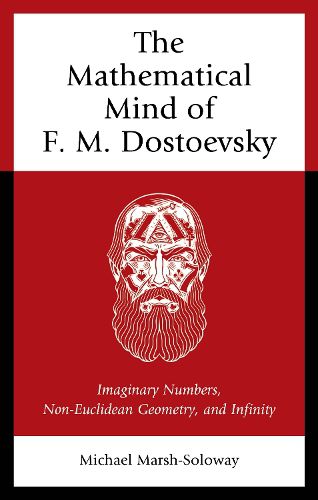Readings Newsletter
Become a Readings Member to make your shopping experience even easier.
Sign in or sign up for free!
You’re not far away from qualifying for FREE standard shipping within Australia
You’ve qualified for FREE standard shipping within Australia
The cart is loading…






The Mathematical Mind of F. M. Dostoevsky: Imaginary Numbers, Non-Euclidean Geometry, and Infinity reconstructs the curriculum and readings that F. M. Dostoevsky encountered during his studies and connects such sources to the mathematical references and themes in his published works. Prior to becoming a man of letters, Dostoevsky studied at the Main Engineering School in St. Petersburg from 1838 to 1843. After he was arrested, submitted to mock execution by firing squad, and sentenced to penal servitude in Siberia for his involvement in the revolutionary Petrashevsky Circle in 1849, most of his books and journals from the period of his education were confiscated, and destroyed by the Third Section of the Russian Secret Police. Although most scholars discount the legacy of his engineering studies, the literary aesthetics of his works communicate an acute awareness of mathematical principles and debates. This book unearths subtexts in works by Dostoevsky, communicating veins of mathematical thought that evolved throughout Classical Antiquity, the Renaissance, and the Scientific Revolution.
$9.00 standard shipping within Australia
FREE standard shipping within Australia for orders over $100.00
Express & International shipping calculated at checkout
The Mathematical Mind of F. M. Dostoevsky: Imaginary Numbers, Non-Euclidean Geometry, and Infinity reconstructs the curriculum and readings that F. M. Dostoevsky encountered during his studies and connects such sources to the mathematical references and themes in his published works. Prior to becoming a man of letters, Dostoevsky studied at the Main Engineering School in St. Petersburg from 1838 to 1843. After he was arrested, submitted to mock execution by firing squad, and sentenced to penal servitude in Siberia for his involvement in the revolutionary Petrashevsky Circle in 1849, most of his books and journals from the period of his education were confiscated, and destroyed by the Third Section of the Russian Secret Police. Although most scholars discount the legacy of his engineering studies, the literary aesthetics of his works communicate an acute awareness of mathematical principles and debates. This book unearths subtexts in works by Dostoevsky, communicating veins of mathematical thought that evolved throughout Classical Antiquity, the Renaissance, and the Scientific Revolution.